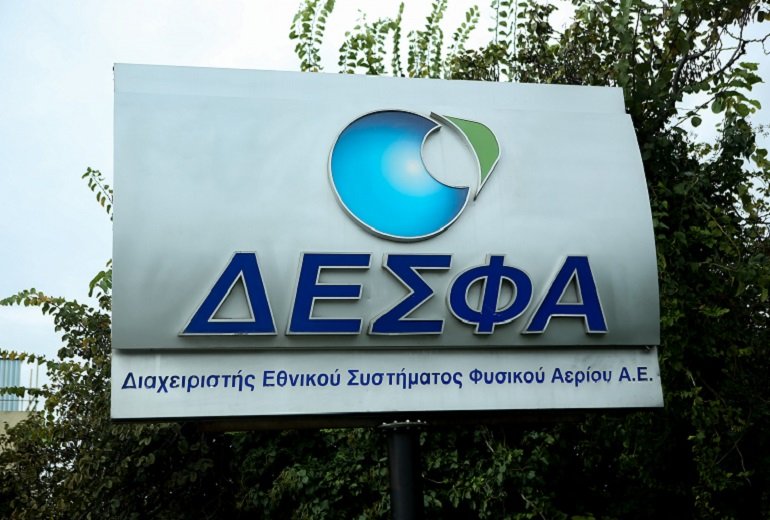The entry point of Sidirokastro remains the main gas inflow gate to the NNGS, while the contribution of the new entry point of Nea Mesimvria, which interconnects the NNGS with the TAP pipeline since the end of 2020, was also remarkable.
Specifically, according to DESFA’s yearly data, domestic gas consumption increased by 10.87%, reaching 69.96 Terawatt hours (TWh) from 63.1 TWh in 2020. The largest share of domestic demand (68.65%) corresponds to the consumption of electricity generation units, followed by household consumers and businesses connected to the distribution networks, with a percentage of 18.77%, as well as domestic industries, directly connected to the high-pressure system of DESFA with a percentage of 12.56%.
Regarding the LNG imports at the Revithoussa Terminal during 2021, they reached nearly 24.51 TWh from 35 vessels compared to about 33.40 TWh from 49 vessels in 2020. Despite the decrease compared to the previous year, essentially almost a third (31.8%) of imported natural gas came from LNG cargo imports. The reductions mainly concern LNG imports from the USA and Qatar (-26.96% and -44.59% decrease respectively), while LNG imports from Algeria increased quite notably by 60.24% compared to 2020. LNG imports from Egypt also increased by 29.74% according to DESFA’s data. The USA remain the largest importer of LNG in Greece with 12.29 TWh (50.14%), with significant imports particularly in the fourth quarter of 2021, with Algeria coming second with 5.40 TWh (22.04%). Qatar and Egypt follow with 4.74 (19.37%) and 1.12 TWh (4.59%) respectively, while Angola is in the last place for 2021 with 0.94 TWh (3.84%).
With the beginning of operation of an additional (the fourth) entry point to the NNGS, that of Nea Mesimvria, the security of supply is further enhanced and the diversification of supply sources and infrastructure is expanded. Thus, for 2021, the imports of natural gas recorded an increase compared to last year, reaching 77.73 TWh over 70.64 TWh for 2020. The largest quantities entered from the entry point of Sidirokastro (35.37 TWh), which covered 45.5% of imports, recording an increase of 10.41% compared to the last year. The quantities imported through the new entry point in Nea Mesimvria during its first year of operation correspond to 17.5% of the total imports, while finally, about 4.02 TWh (5.17%) entered the NNGS through the entry point at Kipoi of Evros.
It is also worth mentioning that the connection of the NNGS with TAP, through Nea Mesimvria entry point, significantly enhances the role of Greece in the regional energy landscape, as the Natural Gas System of the country is now connected to one of the largest gas markets in Europe, that of Italy, which in turn is connected to Northern Europe through Switzerland and Germany.
In summary, DESFA’s infrastructure continues to contribute substantially to the diversification of gas supply sources, enhancing the security of supply. Finally, the liberalization of the energy market and the Third-Party Access TPA, under which DESFA offers access to the NNGS, strengthens competition among natural gas suppliers to the benefit of consumers. Third-party Access (TPA) is governed by the provisions of European Union and national law, ensuring open access to any interested party.















